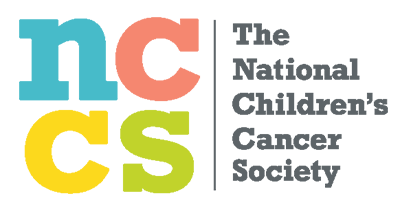Info for Parents – Healthy Living
Our Beyond the Cure program prepares survivors and their families for life after cancer
General Guidelines
It is important for all parents to help their children establish a lifestyle that promotes good health for the future.
Factors such as exercise, diet, obesity, sun exposure and alcohol and tobacco use are associated with the risk of health problems and cancer in the general population. Cancer survivors have an even higher risk for additional health problems and/or another malignancy. Set a good example and encourage healthy habits for your child.
Additional information can be found here:
- Staying Healthy After the Treatment of Childhood Cancer
Presenter: Nancy Keene, popular advocate, writer and parent of a 20-year childhood cancer survivor, Wendy Hobbie, MSN, PNP-BC, FAAN
From: The Children’s Hospital of Philadelphia - Help Your Child Adapt and Grow
Presenter: Lamia Barakat, PhD
From: The Children’s Hospital of Philadelphia - Optimizing the Lifelong Health of Childhood Cancer Survivors: Transitioning off Treatment
Presenter: Wendy Hobbie, CPN, MSN, FAAN
From: The Children’s Hospital of Philadelphia: The Children’s Hospital of Philadelphia
Healthy Diet
What you eat has a direct impact on your health. It is important to eat a healthy diet that includes a variety of fruits, vegetables, nuts and beans. Limit the intake of red meat and processed foods that are high in sugar, low in fiber or high in fat. Restrict the amount of salty foods and processed foods with salt. Pay particular attention to the portions of the food you eat and how they correlate to standard servings. Make sure 2/3 of your diet consist of plant-based foods and 1/3 or less is from animal foods such as meat and cheese. Consume cured meats such as bacon and cold cuts on rare occasions.
Additional information can be found here:
Physical Activity
Physical activity increases energy, improves moods, boosts self-esteem, stimulates the immune system, and reduces symptoms of pain, diarrhea, and constipation.
Experts suggest that most children get at least 60 minutes of moderate physical activity daily. As you watch your children run around all day, you may think that they’re getting more than enough exercise. But 1 in 5 children in the United States today is overweight or obese – in part becauce children spend too much time sitting in front of the television or computer instead of being physically active. Walking, hiking, biking, swimming, dancing, and playing sports with your children in not only great physical activity, but a wonderful way to spend quality time together…and reduce your own stress. It is important to consult with your physician before your child participates in any strenuous activity. Certain types of chemotherapy used in treating childhood cancer may lead to heart disease, which could then be aggravated by strenuous activity.
Smoking
Tobacco is the largest cause of preventable cancers in adults. And smokers aren’t the only victim – second-hand smoke from a lit cigarette and from a smoker’s exhalation can cause lung cancer and heart disease.
Second-hand smoke is especially dangerous to children because their lungs are still developing. It is also related to a higher incidence of asthma and can cause build-up in your child’s ears, leading to middle-ear infections. Do not allow anyone to smoke in your house – and if you’re a smoker, quit.
Additional information can be found here:
Alcohol
Evidence suggests that drinking large amounts of alcohol can elevate the risk of several types of adult cancers and chronic conditions; cancer survivors are at an increased risk.
It is illegal for anyone under 21 to drink any alcohol. Nevertheless, an estimated 70% of American high school seniors have consumed some form of an alcoholic beverage within the past month. A substantial number of studies have shown that the earlier a person starts drinking, the more likely they are to have alcohol-related problems in adulthood.
Your own attitude about alcohol has an enormous impact on your child. Discuss the risk of alcohol consumption and make sure your behavior demonstrates your stated beliefs. Excessive drinking is not recommended as part of a healthy lifestyle. If you choose to drink, do so in moderation.
Sun Exposure
Spending time in the sun can be fun, but too much sun can be dangerous. Excessive exposure to ultraviolet (UV) radiation can cause serious health problems, including skin cancer in adulthood.
Children’s skin should be protected from the sun at all times. Children receiving chemotherapy or radiation may have increased sun sensitivity. The following tips will help protect you and your children:
- Apply sunscreen with a SPF (sun protection factor) of 15 or more to your skin about 15 to 20 minutes before sun exposure. SPF of 15 will block 93% of UVB rays which are the most dangerous ones.
- Apply sunscreen in a thick layer and reapply it every two hours or after you swim (also, be aware that sunscreen has a shelf life of approx. two years)
- Limit your time in the sun and avoid exposure during late morning, midday, and early afternoon when the sun is strongest
- Have your child wear a hat and protect your child’s ears. Make sure to apply sunscreen to ears and the back of the neck
- Have your child wear UV-protective sunglasses
- Dress your child in protective clothing, like long-sleeved shirts and pants, when appropriate
- Set a good example for your child. Practice sun safety so your child will too
- Do not use indoor tanning beds – they contain the same dangerous UV rays as natural sun exposure
Additional information can be found here:
